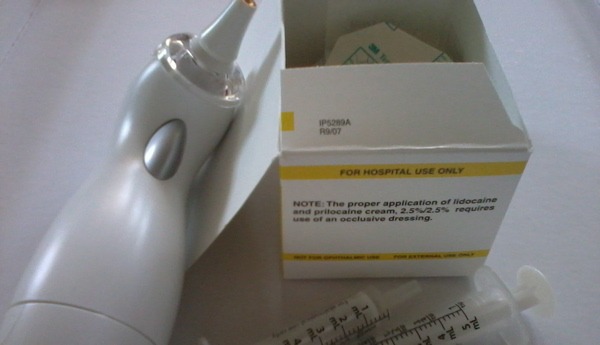
It might be a peculiarity of the American psyche, a rugged individualism and pioneering determination that has made the United States “the land of the free and the home of the brave,” and thank God for that. But that same firm-minded mentality has led to the polarization of the U.S. health care debate (and many others). The two camps defend extreme and largely unrealistic views with little ground for compromise or development of innovative solutions. So busy are the two camps in defending their own and in ridiculing their opponents’ positions, that the nation seems as far away as ever from seeking viable and deployable solutions that are economically valid, efficient, socially acceptable, equitable and reasonable (let alone from making U.S. health care the envy of the world, not just in terms of technology, clinical outcomes and expertise, but in terms of access to all).
In the one camp, there is a rigid adherence to absolute, inviolable free-market mechanisms as the cure-all for the problems of U.S. health care. Residents of this camp say, “If only there was more true market freedom in health care, then all would be solved.” Those with pre-existing conditions would be able to obtain, at some market-determined level, health insurance that would cover them and their families. Breaking down barriers and regulations that exist today would enable free-market mechanisms to adjust the price of medical, dental and vision insurance such that the economic benefit (the ratio of expense outlay to value derived) would be so clear and cogent, that nobody in their right mind would not take out such insurance, and if they chose not to, then sadly a medical catastrophe would leave them with unpayable bills. Making insurance providers compete across state lines, the unlinking of medical benefits to an employer and allowing competitive pressures to freely operate within healthcare (in terms of both supply and demand) would provide better outcomes and solve the problems of escalating health care costs.
The other camp acknowledges that while the free market is a solid, well-tested mechanism in supplying shoes, laptops, cell phones, food (for the most part), clothes and housing, health care is not simply a ‘market’ problem. The nature of illness and disease, striking as it does in an inequitable manner, is such that it is often concentrated within a group or family pre-disposed to certain conditions. Market mechanisms alone would leave those most vulnerable (the temporarily or chronically ill, the unemployed, the uninsured, etc.) with the fewest options, the most expensive medical coverage, the highest deductibles and the poorest quality of life. Many in this camp believe health care, at least at some threshold level, is a basic human right. That is, all people have the right to equal access to medical care on an as-needed basis. A truly free-market mechanism means those with pre-existing conditions are left to the vicissitudes of the free market. Given this complexity, they say, some type of oversight body is warranted and even desirable.
In the one view, the free market should be allowed to operate in health care just as it does elsewhere so that it can ‘solve’ the problems of escalating costs, access, efficiencies, provision, etc. In the other, the free market cannot fix the health care system because more than ‘free market’ forces and concerns are involved (e.g. compassion, public health, societal welfare).
Those on the right of the U.S. political spectrum tend to largely be in favor of the former view, while those on the left tend to favor the latter. Moderates of both persuasions are likely to see the pros and cons of both views. While it is hard to see a common ground between the two camps, there may exist one — a common concern and overall sense that the current system, with its accelerating healthcare expenditures and inequalities in provision and access to health care, needs fixing. Although people from different political perspectives often recommend opposing fixes, they also often agree on the realities and difficulties of the present system of health care:
- The rate of increase of spending and costs of U.S. health care appear to be unsustainable.
- The United States spends more than any other country in the world on health care (double in some instances, in terms of percentage of GDP), whereas other systems (such as the one in the United Kingdom) cover entire populations “for free” at the point of delivery. The U.S. system also leaves many uninsured. (We could argue back and forth on the exact number of uninsured, including the number of long-term and transient patients.)
- For the amount of money that is spent, are we really getting value for our health care dollars? If you examine clinical outcomes of many of the top causes of mortality and morbidity, the answer is — not particularly. (Here, for example, is a comparison of worldwide infant mortality rates, which is an overarching metric of the “success” of a health care system.)
- Most Americans recognize that trying to understand the true costs for a procedure is difficult, if not impossible. Several studies, including this one from the U.S. Government Accountability Office, echo the fact that costs are hidden in the system, and consumers therefore do not exercise true economic pressures on the system.
- Many Americans have a sense that their insurance coverage, regardless of what it is, won’t be enough to cover a specific medical event, or that a medical catastrophe could cause serious financial hardship or complete ruin. Statistics seem to confirm this, with medical bills being a predominant component in the majority of personal bankruptcies. (See here and here for more specifics.)
- The linkage of medical benefits to employment within recent years, with so many Americans facing unemployment, has also been questioned, from both the left and the right.
- In the current system, we pay for the uninsured and under-insured anyway, most often through inefficient and expensive misuse of emergency rooms and intensive care units.
Although I am now a U.S. citizen, I am originally from London, England. Thus, I believe an appeal to British history is in order. In the 16th century, Queen Elizabeth I stood between the great opposing forces of the Roman Catholic Church and the Protestant Reformation. To her credit, she was able to see the advantages and disadvantages in both arguments, the benefits and risks in each, and she tried to find the way through, lest the whole issue explode into chaos and division and be of no benefit to anybody. Wisely, from her position of absolute authority as divine monarch, she devised the via media, the middle way, incorporating elements of both Catholicism and Protestantism. The new way was not absolutely or distinctly one or the other.
Could such a compromise help solve our complex U.S. health care problem? Could some combination of free market forces and government involvement establish, implement and maintain a health care system that would be acceptable to both sides? Could it be cost-contained and -restrained and be more predictable, providing access for all, or at least the vast majority of Americans, including those with chronic disease, pre-existing conditions, the elderly and the infirm? Could clinical outcomes continue to improve and advance in such a system? Could businesses and individuals know the real costs of their health care, make informed purchasing decisions and exert economic pressure via their choices in a way our market would understand, accept and respond to? Is the Affordable Care Act, aka “Obamacare,” the answer to these questions, and if so, how much of it will remain to be enacted after the U.S. Supreme Court’s impending decision on its constitutionality?
Moving towards a better system of health care, recognizing the current challenges, accepting that there are lessons to be learned and avoided from other systems, and acknowledging that technology both helps and hinders the solutions, is likely to remain a political and societal theme in the United States for many years to come. Any significant changes will probably take years to implement, and the effects, positive and negative, of those changes, won’t be felt fully for many years beyond that. The debate on health care opens up some fundamental tenets of American thinking — individualism, freedoms, rights and liberty. It appears to this recent outsider, that neither side in the political realm has the monopoly on those virtues, and recognition of that fact might just be the rubric needed to move forward productively.
Paul Sargeant earned his PhD in physiology and pharmacology from Cambridge University and served a post-doctoral fellowship at The Mayo Clinic. He has more than 20 years of international experience in the medical device industry. Currently, he is the principal for Lucidity, Inc., a management consulting firm specializing in the commercialization of medical devices, biotechnology and clinical diagnostics.


